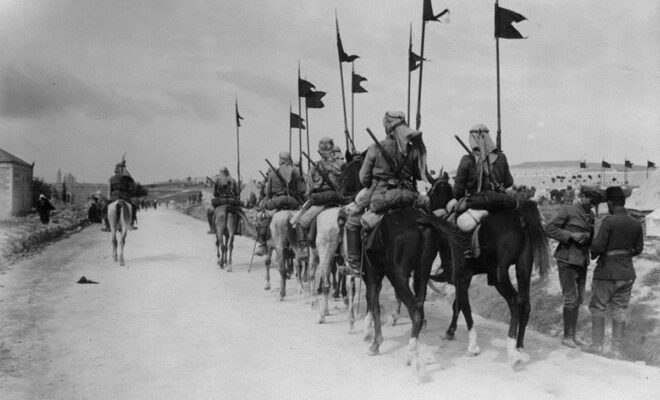Islam’s View on Investing in Stocks

At the end of January, news was abuzz regarding the stock market. Teenagers were discussing complex maneuvers of the stock market, such as shorting, while men in their 60’s were talking about the fate of a video game store named GameStop. Stories were circulated of common people making millions overnight, of hedge fund billionaires losing millions in the same span of time.
And amidst all this, a company named Robinhood, with a stated aim of ‘democratizing the stock market’ became first the hero and then the villain of this dramatic saga.
It is essential to understand what happened in the financial markets, who did what, and what it reveals about the stability and reality of the economic system which we are all chained to.
What happened?
In summary, the company GameStop had been suffering for the past two years due to gaming sales moving away from physical sales, and to digital instead.
Noticing this trend, many investors, chief among them Melvin Capital, decided to bet against GameStop. They did this by doing what is called a “short”.
Shorting involves borrowing stocks from a big institutional investor on interest (according to Bloomberg, the borrowing fee was 23.6%), and selling them at the market price in hopes that the stock will fall in value.
One can then buy the devalued stocks back and return them to the investor who lent them, keeping the difference between the selling and buying price.
This strategy is high risk because if the stock price goes up then one will lose a lot of money.
As certain individual investors became aware of a short on GameStop, they decided to coordinate a ‘short squeeze’, which is to keep buying stocks of the company being shorted in order to counteract the downward pressure of the short.
Investors on Reddit’s investing forum, r/WallStreetBets, engaged in a coordinated campaign of short squeezing by buying GameStop stocks (via call options) en masse.
Eventually, the hedge funds themselves had to start buying back the stock to limit their losses.
The combined effect caused the hedge funds and financial firms to lose millions within days. This campaign had mixed motivations: some “played” the stock market to generate extra income quickly, while others wanted to cause some grief to the predatory Wall Street executives associated with some of the worst cruelty in the financial markets.
Meanwhile, the app which had made it so easy for average people to invest in the stock market – Robinhood, prevented all its users from buying any more GameStop stock i.e., they could sell the shares they had but not buy them.
Robinhood: Who is robbing who?
Robinhood, an app that was started by two Stanford graduates, describes its mission as opening up the financial markets to average people, not just the rich.
It purports to achieve this by having virtually no interaction fees, and even giving free stocks for signing up, or inviting others to sign up.
But Robinhood also sells information to the hedge funds themselves. Its largest client is Citadel Securities, who uses this information as a “market maker”.
The reality of this app is that it gamifies investing, designing it in very much the same way as a gambling app. Beyond selling stocks, it introduces new investors, mostly younger people, to complex market strategies such as options trading.
Many younger people are drawn into investing more and more money into this system, being unaware of the risks of these markets, and unsuited to its volatility.
It should be clear that Robinhood is not a problem for the financial elite. Instead, it helps the elite hedge funds and ensnares a new generation of young people into the capital markets.
Whose street is Wall Street?
It should also be clear that Wall Street, even as it tries to lure more investments into the stock market, is structurally designed to shut out the average investor.
CNBC cites a report by the Federal Reserve that states more than 85% of the equities in the US markets are owned by the top 10% of households, and going further to say that 70-80% of equities have always been in the hands of the top 1% since the 1980’s.
What is more, the system will keep changing its rules to protect its large institutional and elite investors. During the 2008 financial crisis, the US Securities and Exchange Commission (SEC) explicitly forbade shorting on the banks, as this was considered a predatory practice. But when predatory firms shorted the housing market, or firms like Melvin Capital decided to short GameStop – a retailer hard hit by the pandemic – there was no protection.
For the wealthy, the financial markets are a place to hoard their wealth, safe from tax-collectors and away from any genuine investment in their communities. For the average investor looking to supplement their income, or the young person chasing dreams of instant wealth, the stock market is a mirage that ends in bitterness and disappointment.
Illusion of wealth
Any gains from the stock market that do trickle down to the average investor are entirely illusory. The value of stock is justified by expectations of future growth and not the actual value of the net assets of the company. Also, stocks do not represent any growth in the real economy of a nation.
They are based on speculative bubbles, entirely divorced from the production and distribution of goods and services in an economy. University of Florida professor Jay Ritter studied 20 years of raised capital through the issuing of stocks and found that only 2% of it was used by companies to buy equipment or invest in production. The majority of firms fund their operations through revenues, not the capital markets.
What this inevitably results in are “corrections”, where the sandcastles built on illusory expectations come crashing down, as the market adjusts to what is going on in the real economy and not the financial projections of men in suits. This leads to a massive loss of wealth for many, last seen in the 2008 financial crisis, which saw an immediate stock market loss of $37 trillion and a sustained loss of $10-12 trillion. In 2015, $11 trillion worth of global shares were lost over three months. In June 2016, after the Brexit referendum, $3 trillion in paper wealth was lost in 3 days, approximately $1.3 trillion of that in the US markets alone.
Protecting our wealth
Maintaining the purity of our rizq is not something to be taken lightly in Islam. Our Most Just and Wise Creator has not just asked us to be honest and diligent in our work, He has also revealed an economic system through which we can ensure that our wealth is safe from unnecessary risk, predatory cruelty, or addictive self-harm.
The economic system of Islam allows wealth to benefit the individual, while benefiting society, and achieving a vision of mutual cooperation for the servitude to Allah (swt) and in service to the community.
Islam prohibits shorting, because it involves riba (interest), which is haram. As well, it is haram to invest in the stock market.
Firstly, the contract fails to meet the Islamic standard for a legitimate partnership contract. Since the entity that initially issues the stock is a corporation and not a person, there is no actual offer of partnership. There is only an acceptance. Islam mandates both the offer and acceptance (ijab and qubool) be in place.
Secondly, the partner is responsible for all transactions that the company does. If one invests in Apple and they buy alcohol for a party, then the investor shares in the transgression as well. There is no limited liability on the Day of Judgement. Therefore, it is prohibited to transact in stocks or benefit from them. Moreover, concentrating wealth among the elites of society and preventing its redistribution is rejected in Islam, and stock markets are key mechanisms that enable this (as mentioned earlier).
Islamic partnership contracts, in contrast, will open up wealth creation mechanisms to all members of society, thereby enabling wealth redistribution. Individuals can use their creativity, talent, skills and labour to negotiate partnerships with the wealthy. And because the wealthy cannot hoard their wealth, and have to extract zakat from it annually, they will be forced to invest in the talent, skills and labour of their communities.
Ultimately, we know that our lives and wealth have been given to us by Allah (swt), and if we are not careful to keep them pure from what He has prohibited, we will have no standing with Him on the Last Day.
The Messenger of Allah (saw) stated: “That flesh will not enter Paradise which has grown from Haram, and all that flesh which has grown from Haram, the fire (of hell) is more worthy of it.” [Musnad Ahmed]
Rather, we should exert ourselves in studying and understanding the sure footing given to us by the Lord of the Worlds and hold on to His revealed commands. This is the greatest investment, leading to the ultimate success.
“Who is it that would loan Allah a goodly loan so He may multiply it for him many times over? And it is Allah who withholds and grants abundance, and to Him you will be returned.” [TMQ 2:245]
Hizb ut Tahrir Canada www.hizb-ut-tahrir.org info@hizb-ut-tahrir.ca









